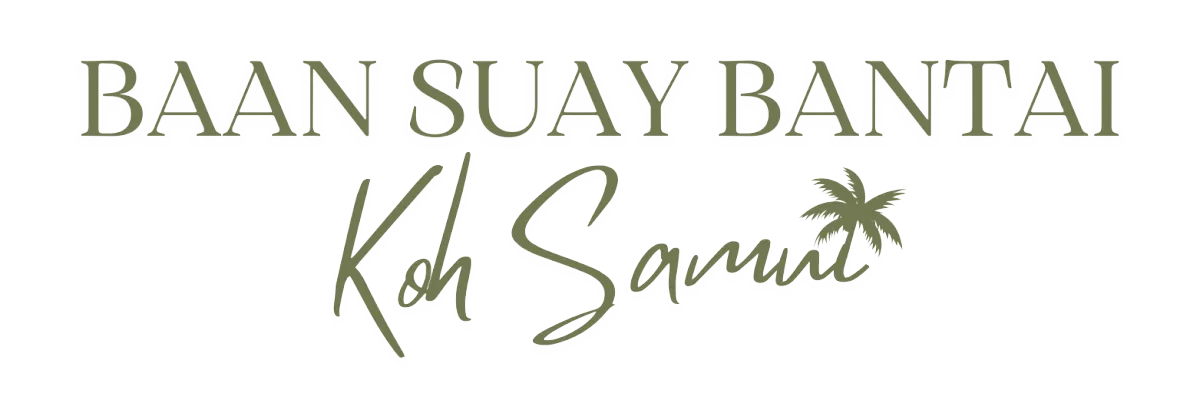Most Recent Blogs

Cultural norms and etiquette dos and don'ts in Thailand
Introduction:
Are you familiar with the cultural norms and etiquette dos and don'ts in Thailand?
If you’re planning a holiday to Thailand and you’d like to return the politeness and friendliness of the local Thai people, you want to check out the dos & don’ts below!!
Whether you're a first-time visitor or have been to Thailand before, it's important to be aware of the do's and don'ts to show respect and appreciation for the local culture. While some of these may be familiar to you, others may surprise you and provide a deeper understanding of this beautiful country and its people. So, take a moment to read through the list below and ensure that you're ready to enjoy a memorable and respectful trip to Thailand!
✔️Starting off with the DOS:
1️⃣ Greeting people with a wai:
The wai 🙏🏼 is a traditional Thai greeting that involves putting your hands together, palms touching, and raising them to chest level. It's a sign of respect and acknowledgment. The wai is used when greeting someone, saying thank you, or apologizing. When greeting someone, the higher the hands are raised, the more respectful the greeting is. When greeting someone of higher status, such as a monk or elder, it's appropriate to bow slightly while performing the wai (while the bottom of your palms touch your chest and your thumbs touch right in between your eyebrows).
2️⃣ Dress modestly:
Thais value modesty, particularly when it comes to the way they dress. When visiting temples or other religious sites, it's important to dress appropriately. Women should wear clothing that covers their shoulders and knees, and men should wear long pants and shirts that cover their shoulders. Avoid wearing revealing clothing, such as shorts or tank tops, when visiting these sites.
👙 Wearing just a bikini or swim shorts is really only acceptable on the beach or by the pool. Going to a beachside restaurant or nearby shop? Cover up slightly, even on an island like Koh Samui. For Thai's it is not in their nature to say something when you are dressing or behaving inappropreately as you'll find they will often avoid confrontation, however, this doesn't mean that it's accepted or they don't mind.
Below is a screenshot of a post in a community Facebook group, written by a local Thai lady:


3️⃣ Take off your shoes:
It's customary to take off your shoes before entering someone's home or a temple, even certain shops. Not sure if you should be taking of your shoes when trying to enter a building? It’s fairly simple.. look for a pile of shoes or flip-flops outside the entrance as a sign. 🩴🩴🩴
When entering a temple or other religious site, it's especially important to remove your shoes and leave them outside. You should also avoid pointing your feet towards Buddha images or other sacred objects.
4️⃣ Show respect to the monarchy:
Thais hold their monarchy in high regard, and it's important to show respect to the king and queen, as well as any royal family members. It's considered disrespectful to speak negatively about the monarchy or to show disrespect towards their images or symbols. If you find yourself at a local market, park, or another public area in Thailand at either 8 AM or 6 PM, you may notice music playing over the speakers and people dropping whatever it is they’re doing to stand still. What you’re witnessing is the Thai people paying respect to the King and the monarchy. What you hear is the national anthem, known as Phleng Chat Thai, being played. This is a common daily practice at 8 a.m. and 6 p.m. in certain public places and it's customary to stop what you are doing and stand facing the direction of the music to show respect.
Another thing that you absolutely don't want to do is step on money. In Thailand, stepping on money is considered disrespectful because currency bears the image of the king.
5️⃣ Use your right hand:
When eating, passing objects, or shaking hands, it's polite to use your right hand, as the left hand is considered unclean. In Thai culture, the right hand is used for eating, and the left hand is used for cleaning oneself after using the bathroom. 🚿
When passing objects, such as money, use your right hand, this goes for shaking hands as well.

❌ DON'TS! - things to absolutely avoid doing in Thailand:
1️⃣ Don't touch people's heads or hair (or even reach for something above their head):
The head is considered the most sacred part of the body, and it's impolite to touch or pat someone's head. It is seen as a violation of personal space and a sign of disrespect when you touch or reach above someone’s head. This is true for both adults and children (in many cases). And of course, something like this can slip your mind when it’s not something you’re used to, especially when engaging with children as it's common in Western parts of the world to touch a child's head as a way of showing affection. In Thailand however, this is a “NO, NO”. So this is something to be mindful of, especially when planning to volunteer in Thailand as a teacher or in an orphanage. If you do accidentally slip up, apologize as soon as possible. It is important to note that Thais understand that tourists may not be aware of this cultural norm, so someone is unlikely to address you about it. Still, an apology when you slip up will be very much appreciated.
This topic has stirred up quite the discussion in the past, and many people who have visited Thailand for their holidays have asked me why some local people had touched the head of their children then. This isn't a very easy question to answer or to explain but it all has to do with the way in which you would touch the head of a child. In some (gentle) ways it is indeed okay when it's a child but it all has to do with the type of touch. A rub for instance is an absolute no. Therefore, without fully understanding what is and what isn't accepted, it is always better to refrain from touching anyones head all together, including children.
2️⃣ Don't point with your feet:
Feet are considered the lowest and dirtiest part of the body, so avoid pointing or gesturing with them. If you need to point something out, use your hand or nod your head in the direction you want to indicate.
Don't disrespect Buddha images: Thailand is a predominantly Buddhist country, and it's important to show respect to Buddha images, particularly in temples. Avoid touching or sitting on Buddha images, and don't use them as a backdrop for photos. When taking photos, avoid turning your back towards Buddha images.
3️⃣ When visiting a temple or coming across monks elsewhere, it's important to be mindful and to show respect and reverence for their religious beliefs and practices:
Following proper etiquette when interacting with monks can help you avoid causing offense and demonstrate your appreciation for Thai culture and religion. Avoid physical contact or touching with a monk, regardless of whether you are a man or a woman. While it's not strictly forbidden for men to shake hands with a monk, it's still considered respectful to avoid physical contact altogether. Women however are advised to be extra cautious about this and keep their distance as it is strictly against the rules for monks to touch a woman in any way.
If you want to hand something to a monk, this could be an offering for instance.. Don't hand something directly to them: Instead, place it on a table or mat in front of them, or place it on the ground if a table or mat is not available. This is to avoid physical contact with the monk, as well as to show respect for their position.
4️⃣ Don't lose your temper:
Thai people value harmony and avoid confrontation, so it's important to remain calm and respectful, even in frustrating situations. Avoid raising your voice or displaying anger, as this can be seen as disrespectful and it will definitely not get you far.
A small effort can make a big difference in how you are treated and valued during your stay in Thailand..
By showing your respect for Thai culture and traditions, you will not only make a positive impression on the local people but also develop a deeper understanding of the country and its rich culture. It can be a great way to learn more about Thai history, customs, and values, and have an even richer and more meaningful travel experience. 💕
Also read our blog: The Ethical Dilemma of Elephant Tourism in Thailand: A Call for Change to learn more about ethical Elephant encounters in Thailand.
© 2023+ Misty Dowling Media - All Rights Reserved

